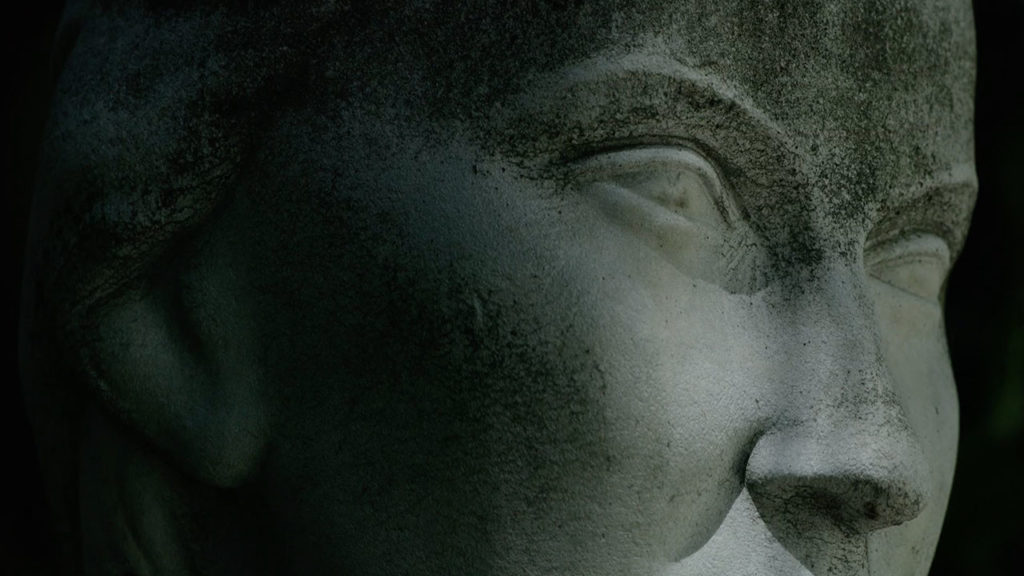Rotterdam review: Landscapes of Resistance (2021)

What are the landscapes of resistance? The dripping Balkan forests with their caves and their hiding places? The broken down farmhouses with moss covered roofs? The ruins of the death camp, the chimneys and fences rising like pillars in the tall grass? Or is it also the skin of an old woman, up close so you can see the pulse of a blue vein under the translucent skin, with 82298 a faded but still legible tattoo?
For Marta Popivoda, director of her self-described “Partisan Film” Landscapes of Resistance, it can be all of these things. We open on an almost cliched image of a poppy field in flower. Slowly, very slowly, the image blooms as the focus shifts to take in more poppies. It is a visual metaphor for what the film will seek to do – see back through the past to a moment of struggle and suffering which might help us see our present more clearly. It is a film which demands our patience at first but which rewards it with a fascinating experience.
The film is Sofija Sonja Vujanovićher’s story. The octogenarian is seen at first like a sweet old lady, with her cat on her lap, but she soon begins to tell a story from the darkest days of European history. She is an eye-witness, a victim and a participant. A communist whose beliefs saw her expelled from school, Sonja joined Tito’s Partisans to fight the fascists during the Second World War. As she recounts her tale of life in the woods, preparing “actions” disguised as a peasant woman, attacking trains, we see the settings of these events as they are today. Some places nature has taken back; others have the sound of nearby traffic. As with Claude Landzmann’s Shoah, there is a tangible sense that you could almost scratch the screen and see into the past. This comparison becomes more pointed when Sonja is captured and, after being tortured by the Gestapo, is sent to Auschwitz as a political prisoner.
Ana Vujanović, the co-writer on the film, Sonja’s great-niece and Popivoda’s partner, interleaves her own journal entries as, over the years, the filmmakers record Sonja’s story. In doing so there is a conscious attempt to draw parallels between the communism and the partisans of the forties with the political activism – the “cultural Marxism” of today. At first, this feels like a stretch. Sonja talks about throwing grenades into train carriages and sharpening knives to try and kill her guards. It hardly matches up to someone shouting rude words at you when you’re on a political march.
But as Popivoda and Vujanović move from Belgrade to Berlin and begin to witness the rise of the new Far Right across Europe the parallels begin to converge and the example and inspiration Sonja gives becomes more urgent and credible. Living witnesses of these old battles are dying off just at the moment that we need their knowledge, experience and inspiration. “If there is one thing Sonja has taught us it is that we don’t have to be heroes to be partisans, but we must be partisans,” writes Vujanović. “There’s no alternative.”
Landscape of Resistance world-premiered in the Tiger Competition of Rotterdam International Film Festival.
Country: Serbia, Germany, France
Language: Serbian
Year: 2021
Run time: 95′
Production: Dragana Jovovic, Marta Popivoda – Theory at Work (Serbia), Marta Popivoda (Germany), Jasmina Sijercic Bocalupo Films (FR)
Directed by: Marta Popivoda
Script: Marta Popivoda, Ana Vujanovic
Cinematography: Ivan Markovic
Editor: Jelena Maksimovic
Sound: Jakov Munizaba, Simon Apostolou
















